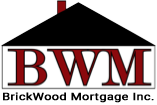Deciding between a reverse mortgage and a home equity loan depends on your individual financial situation, needs, and goals. Both options allow you to tap into your home’s equity (either as the existing owner or during the purchase process), but they work differently and have distinct advantages and disadvantages. Here’s a comparison to help you determine which might be right for you:

Reverse Mortgage:
Borrower Age Requirement: You must be 62 or older to qualify for a reverse mortgage.
- Income and Credit: There are generally no income or credit score requirements to qualify for a reverse mortgage. Approval is primarily based on age, home value, and equity. However, the process is different when tapping into existing equity and purchasing a home, so it’s worth contacting experts for assistance.
- Loan Repayment: With a reverse mortgage, you receive funds based on your home’s equity, and you don’t make monthly payments. The loan is repaid when you sell the home, move out, or pass away; interest accumulates over time.
- Home Ownership: You retain ownership of your home, and you’re responsible for property taxes, insurance, and maintenance.
- Loan Amount: The amount you can borrow with a reverse mortgage depends on your age, home value, and current interest rates. The older you are, the more you can typically borrow, but there’s no hard and fast rule.
- Use of Funds: Funds from a reverse mortgage can be used for any purpose, such as covering living expenses, healthcare costs, or home renovations.
- Estate Planning: A reverse mortgage can reduce the equity passed on to heirs, as the loan balance must be repaid when the borrower passes away or sells the home (in the most common cases). However, heirs have the option to repay the loan or sell the home to settle the debt.
Home Equity Loan (or Home Equity Line of Credit – HELOC):
- Borrower Age Requirement: There is no age requirement for a home equity loan or HELOC. However, lenders typically require a good credit score and sufficient income to repay the loan.
- Loan Repayment: With a home equity loan or HELOC, you receive a lump sum (loan) or access to a line of credit. Monthly payments are required, and the loan must be repaid over a specified term, typically 5 to 30 years.
- Home Ownership: You retain ownership of your home, but the property is used as collateral for the loan. If you fail to make payments, you could face foreclosure.
- Loan Amount: The amount you can borrow is determined by your home’s equity, creditworthiness, and the lender’s policies.
- Use of Funds: Funds from a home equity loan or HELOC can be used for various purposes, including home improvements, debt consolidation, education expenses, or any other financial needs.
- Interest Rates: Interest rates for home equity loans and HELOCs are typically lower than those for reverse mortgages because they are conventional mortgage products.
In summary, a reverse mortgage is primarily designed for seniors who want to access their home equity without making monthly payments, but others can utilize them too. Meanwhile, a home equity loan or HELOC is available to a broader range of homeowners but requires regular monthly payments.
The choice between the two depends on your age, income, creditworthiness, goals, and how you plan to use the funds. It’s crucial to carefully consider the pros and cons of each option and consult with a financial advisor or mortgage lender to determine which is the best fit for your unique financial situation.
Reverse Mortgage or Home Equity Loan
Understand the differences between a reverse mortgage and a home equity loan with guidance from BrickWood Mortgage, Inc.! Let us help you make the right financial choice. Call us today at (843) 314-4101 for expert advice!
Lorem ipsum dolor sit amet, consectetur adipiscing elit. Ut elit tellus, luctus nec ullamcorper mattis, pulvinar dapibus leo.
